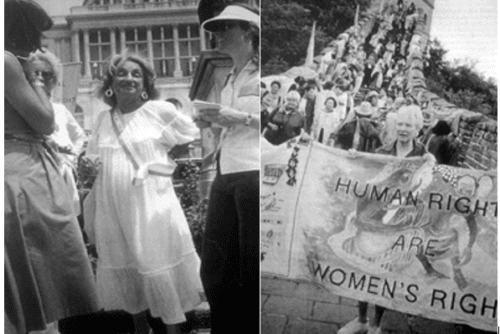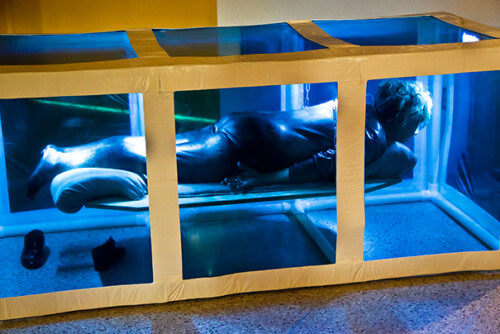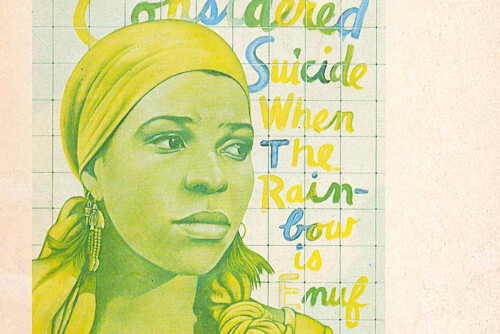From Bridges: A Journal for Jewish Feminists and Our Friends, Volume 10, Number 1, 2004.
“Mostly what I’m trying to say is that everyone’s sleep walking, gotten used to this strange lifestyle and thinking as little as possible about what is happening in Gaza, or just over the next hill. Just moving through the heavy air and not thinking.”
– Yosefa Raz
The sleepwalkers rise from their beds
at night, ruffling the Jerusalem air
they step out onto porches, high above the earth
their open eyes shutting out the view
they cannot return to the safety of covers
unless an order from above
claps beyond clouds
they know and don’t know that they are strangers
to this place, to their families sleeping soundlessly
like babies full of milk
they are emigrants who lost their suitcases
on the ride over, or even before that, they find
themselves bewildered, standing in empty supermarkets,
lights turned off, sensing the dull ache of frozen vegetables,
overripe cheeses glowing in the dark,
they blink as they drift down Emek Refa’im street
where the rich buy fruits wrapped
in tissue paper, or sit in cafés blankly looking out,
while old Arab women in black embroidered dresses and white kerchiefs
squat on the sidewalk, their carton boxes filled with scallions and mint
fresh from the fields over the hills
and figs in season.
Sometimes I really need to wake up
and think about everything that has happened.
I try turning on the light switch,
waiting for a spell of sanity in order to distinguish
between what is and what is not,
if there is such a thing at all.
The other night my pillow lying on the floor
was an old teddy bear, a childhood acquaintance,
and once a towel was transformed into an unfamiliar man’s jacket.
I tell my friend that the fence surrounding this café
is new. The previous one was improvised
but how did they mark off space before that?
We try to get our minds around the problem,
memory is funny that way,
and why have we chosen to sit in this café
and not in the one just a block away that was blown up months ago,
now sleekly renovated?
You feel like you are visiting a haunted city,
reading about a child’s funeral in Agnon’s Shira,
staying in your dead grandfather’s apartment on French Hill,
while your grandmother lives in a nursing home, and the walls are covered
with black-and-white photographs that send shivers down my spine.
I am ready to welcome you to this place, but not to wake up
for that purpose. You say my eyes can see it all.
I am no longer sure of anything.
The safest thing perhaps is to stay at home,
but who can promise me that home won’t become a stranger to my body,
especially when night falls.



